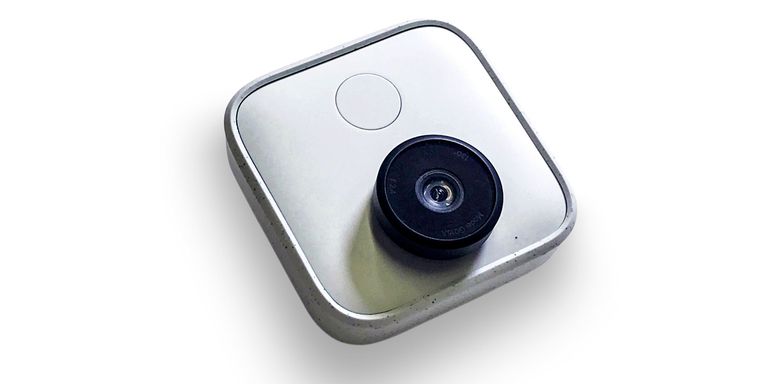Google's A.I. Camera Shoots What You'd Miss
PM Approved: The body-mounted Google Clips camera films only when there’s something worth capturing.
Every time there’s a new hands-off life-capture device (GoPro, Snap’s new Spectacles), I get excited, wondering how I’ll stay grounded once I become Instagram famous. Instead, I use it for a week, get tired of slogging through all the footage, and then introduce it to my tech junk drawer.
But unlike those cameras, Google Clips(starting at $250) shoots only when there’s something worth capturing. Point it at a scene, twist the lens to turn it on, and the A.I. looks for criteria culled from years of data analysis—smiles, gesticulation, a pet entering the frame. The result is seven-second videos, sans sound, at 15 fps. At any time, open the phone app and swipe to save or delete, and select stills (up to 12-megapixel in resolution) from the videos. The machine-learning software will then try to capture more like what you keep, less of what you scrap.
Google says the 16 GB of memory is impossible to fill in a single event, leaving the three-hour battery life as its limit. The quality becomes grainy in lower-light situations, like at a dinner party. But otherwise it works as advertised, and the results are compelling. You wouldn’t pull out your phone and ask your friend to reenact a hilarious gesticulation. And you don’t have to, because Google’s A.I. shoots it for you.
Here's a review from general public itself:
After being announced back at the Pixel 2 event in October, Google’s new device is now available via Google Store, Best Buy, B&H and Verizon for $249. The company calls the product a “smart camera,” a reference to all of the complex artificial intelligence and machine learning happening on device in order to make the experience as simple as possible.
I wrote a lot of words about the product over here, but the long and short of it is that Clips is aimed firmly at parents and pet owners looking for a way to capture candid moments with their loved ones that don’t require them to have a their smartphone out at all times.
Here’s Google’s description,
Clips isn’t designed to replace your smartphone camera or your DSLR. It’s a new type of camera that captures the moments that happen in between posed pictures by using on-device machine learning to look for great facial expressions from the people—and pets—in your life. It turns these into short clips without your having to use video editing software.
The device relies on AI to identify familiar faces and determine the best moments to capture a seven second video that can be turned into a still images or shared as an Apple Live Photo, Google Motion Photo or animated GIF.
The system is designed to learn and recognize humans, cats, dogs, and, I can personally confirm, rabbits. Honestly, the review is worth reading just for the dog and rabbit GIFs alone.
The camera is compatible with both Android and iOS and it is available for purchase in Stores and online marts.
For much such exciting news about new techs and gadgets, keep following us on facebook page: https://m.facebook.com/profile.php?id=460823727425069&ref=content_filter.

Comments
Post a Comment